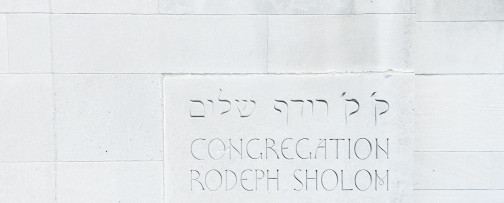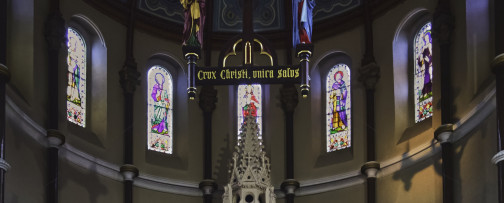Cremation is a topic that has sparked much discussion and debate, especially among those seeking guidance from the Bible. As believers, it is important for us to turn to God's Word to find wisdom and understanding on such matters. In this article, we will explore what the Bible says about cremation and delve into various perspectives and interpretations surrounding this practice.
Understanding the Concept of Cremation
Before delving into the biblical references and interpretations surrounding cremation, it is crucial to grasp the concept itself. Cremation is the process of reducing a body to ashes through intense heat, typically carried out in a crematorium. This practice is an alternative to traditional burial and has been around for centuries.
When it comes to cremation, there are several important aspects to consider. One of them is the process itself, which involves placing the deceased person's body in a specially designed furnace. This furnace reaches temperatures of around 1400-1800 degrees Fahrenheit, ensuring that the body is completely reduced to bone fragments. These bone fragments are then further pulverized into fine ashes, which are commonly referred to as cremains.
Once the cremation process is complete, the ashes are typically placed in an urn or scattered in a meaningful location. Many people choose to keep the urn in their homes, providing a physical presence and a place of remembrance for their loved ones. Others opt to scatter the ashes in a location that held significance to the deceased, such as a favorite park or a beloved beach.
The Process of Cremation
The process of cremation involves placing the deceased person's body in a specially designed furnace, which reaches temperatures of around 1400-1800 degrees Fahrenheit. Through this intense heat, the body is reduced to bone fragments and then further pulverized into fine ashes. These ashes, known as cremains, are typically placed in an urn or scattered in a meaningful location.
It is important to note that the process of cremation is carefully regulated to ensure that it is carried out respectfully and in accordance with legal requirements. Crematoriums follow strict protocols to guarantee that each individual's remains are handled with dignity and care.
Furthermore, the decision to choose cremation over traditional burial is a personal one. Some individuals may have specific reasons for opting for cremation, such as environmental concerns or a desire for simplicity. Others may choose cremation due to cultural or religious beliefs.
Historical and Cultural Views on Cremation
Cremation has been practiced in various cultures throughout history. For some, it holds deep religious and cultural significance. In ancient Greece, for example, cremation was widely practiced and considered a way to release the soul from the physical body. Hinduism also embraces cremation as a vital step in the cycle of life and rebirth.
Similarly, in Buddhism, cremation is a common practice as it aligns with the belief in impermanence and the transitory nature of life. The act of cremation symbolizes the release of the soul from the physical body, allowing it to move on to its next journey.
While historical and cultural views on cremation may differ, it is essential to focus on what the Bible has to say about this topic. By examining biblical references and interpretations, we can gain a deeper understanding of God's perspective on cremation and its implications.
Exploring the biblical perspective on cremation can provide individuals with insights and guidance as they navigate end-of-life decisions. It is important to approach this topic with an open mind and a willingness to engage in thoughtful discussions that consider various viewpoints.
Biblical References to Death and Afterlife
Death and the afterlife are recurring themes in the Bible, shedding light on God's plan for humanity and providing comfort to believers. Let us explore what the Old and New Testaments teach us about death and the journey beyond.
Old Testament Perspectives on Death
The Old Testament offers several insights into how death was viewed by the Israelites. It portrays death as a seemingly final and inevitable consequence of humanity's fallen state. However, the Old Testament also points to the hope of a future resurrection, as seen in Job's declaration, "I know that my redeemer lives, and that in the end he will stand on the earth" (Job 19:25, NIV).
Job's profound statement not only reveals his personal faith in God, but it also serves as a testament to the belief in life after death. It reminds us that even in the face of death, there is hope for redemption and restoration.
Furthermore, the Old Testament provides glimpses of the Israelites' understanding of the afterlife. In the book of Daniel, we encounter the concept of a resurrection to eternal life, where it says, "Multitudes who sleep in the dust of the earth will awake: some to everlasting life, others to shame and everlasting contempt" (Daniel 12:2, NIV). This passage suggests that there will be a judgment after death, where the righteous will be rewarded with eternal life and the wicked will face eternal punishment.
As we examine the Old Testament's perspective on death, it is important to note that specific references to cremation are scarce. However, the absence of direct mentions does not mean it is implicitly condoned or condemned. The Israelites primarily practiced burial, as seen in the accounts of Abraham, Sarah, and other prominent figures in the Old Testament. Burial was considered a respectful way to honor the deceased and was often accompanied by mourning rituals and the placing of grave markers.
New Testament Perspectives on Death
In the New Testament, we find a profound shift in the understanding of death and the afterlife. In the teachings of Jesus, we witness the promise of eternal life through faith in Him. Jesus says, "I am the resurrection and the life. The one who believes in me will live, even though they die" (John 11:25, NIV).
Jesus' words offer a message of hope and assurance to believers. He presents Himself as the source of resurrection and eternal life, emphasizing the importance of faith in Him as the key to overcoming death.
While the New Testament emphasizes the hope of eternal life, it does not provide specific instructions regarding funeral practices or the appropriateness of cremation. Therefore, we must explore indirect references and interpret them within the broader context of biblical principles.
One such indirect reference can be found in the account of Jesus' burial. After His crucifixion, Jesus was laid in a tomb, which was a common practice at the time. This suggests that burial was the prevalent method of handling the deceased during that era.
Additionally, the apostle Paul, in his letters to the early Christian communities, speaks of the resurrection of the body. He explains that believers will be transformed and receive glorified bodies, similar to Christ's resurrection body. This concept implies that the physical body holds significance even in the afterlife, further supporting the idea of burial as a respectful and meaningful practice.
Ultimately, while the Bible does not provide explicit instructions on funeral practices or the appropriateness of cremation, it offers profound insights into the hope of resurrection and eternal life. It encourages believers to trust in God's plan and find comfort in the promise of a future beyond death.
Direct and Indirect References to Cremation in the Bible
Though the Bible does not explicitly address cremation, we can find indirect references that offer insights and spark discussions among believers. Let us explore both the Old and New Testaments to gain a deeper understanding.
Old Testament References
In the Old Testament, we encounter instances where bodies were burned. For instance, King Saul and his sons were burned after their deaths to prevent further desecration of their bodies (1 Samuel 31:8-13). However, it is essential to note that these instances were specific to their circumstances and not indicative of a universal practice or endorsement of cremation as a whole.
Furthermore, in the book of Amos, the prophet speaks of God's judgment upon the wicked, saying, "And it shall come to pass in that day, saith the Lord GOD, that I will cause the sun to go down at noon, and I will darken the earth in the clear day" (Amos 8:9). This vivid imagery of darkness and burning serves as a metaphorical representation of divine wrath rather than a direct reference to cremation.
Another interesting point to consider is the story of Elijah and the prophets of Baal on Mount Carmel (1 Kings 18:16-40). After Elijah's victory, he commanded the people to seize the prophets of Baal and brought them to the brook Kishon, where he executed them. Although the text does not explicitly mention the disposal of their bodies, it is plausible to assume that their remains were dealt with in a manner consistent with the cultural practices of that time, which may have included burning.
New Testament References
Turning our attention to the New Testament, the book of Acts mentions the burning of magical scrolls by new believers who had repented of their former practices (Acts 19:19). This event, although not directly related to cremation, highlights the significance of honoring God and turning away from practices rooted in darkness.
Moreover, in the book of Revelation, the apostle John describes a vision of the final judgment, where he sees a lake of fire into which the wicked are cast (Revelation 20:14-15). While this depiction may evoke images of cremation, it is important to recognize that this is a symbolic portrayal of eternal punishment rather than a literal endorsement of cremation as a burial practice.
It is worth noting that throughout the Bible, the emphasis is placed on the resurrection of the body rather than the method of burial. The belief in the resurrection of the dead is a central tenet of Christian faith, emphasizing the hope of eternal life in Christ.
In conclusion, while there are indirect references to burning in the Bible, it is crucial to interpret them within their specific contexts and understand that the Bible does not provide explicit guidance on the practice of cremation. The focus of the Scriptures is on the spiritual significance of honoring God and the hope of resurrection rather than the physical processes of burial or cremation.
Interpretations of Biblical Texts on Cremation
As believers seek guidance on cremation from the Bible, interpretations of relevant biblical texts may vary. Let us explore the conservative and liberal viewpoints that have emerged within the Christian community.
When delving into the conservative interpretations of biblical texts on cremation, it becomes evident that there are several key principles that shape this viewpoint. One such principle is the emphasis on honoring the body. According to this perspective, the physical body is seen as a sacred vessel that should be treated with utmost respect, even after death. This belief is rooted in the understanding that the body is a creation of God and should be handled in a manner that reflects this divine origin.
Furthermore, conservative interpretations often draw upon burial customs in biblical times to support their stance against cremation. In ancient times, burial was the common practice, and it is argued that this tradition should be upheld as a way to honor the deceased. The act of burying the body in the ground is seen as a symbolic gesture of returning the body to the earth, emphasizing the connection between humanity and the natural world.
Another aspect considered by those who hold conservative interpretations is the desire to preserve the body's integrity. They believe that cremation, which involves the burning of the body, compromises the physical integrity of the deceased. This perspective stems from the belief in the resurrection of the body, where the physical body is seen as essential for the future resurrection and reunion with the soul.
On the other hand, a more liberal interpretation takes into account the freedom and flexibility provided by the New Testament. While recognizing the importance of respect for the body, proponents of this viewpoint believe that how one's remains are handled after death is of less significance compared to matters of the heart. They argue that the focus should be on the spiritual well-being of the individual and their relationship with God, rather than the physical state of the body.
This liberal perspective acknowledges that the Bible does not explicitly address the issue of cremation, leaving room for personal choice and cultural differences. It emphasizes the idea that the ultimate concern should be the individual's faith and the love they have shown to others during their lifetime, rather than the method of disposal of their physical remains.
It is important to note that these interpretations are not exhaustive and that there are various other viewpoints within the Christian community. The diversity of opinions on this matter reflects the complexity of interpreting biblical texts and the different cultural contexts in which believers find themselves.
The Church's Stance on Cremation
Throughout history, the Church's views on cremation have evolved, reflecting changing cultural norms and interpretations of biblical teachings.
Early Church Views on Cremation
In the early days of the Church, cremation was generally discouraged due to its association with pagan practices. The focus was on burial and the expectation of a future resurrection. However, it is important to note that these views were shaped by cultural and historical contexts rather than direct biblical mandates.
Modern Church Views on Cremation
In more recent times, the Church's stance on cremation has shifted. While cremation is now generally accepted by many Christian denominations, there is still an emphasis on treating the body with reverence and honoring the deceased through appropriate means. The specific practices may vary, but the underlying principle of respect remains constant.
In conclusion, the Bible does not provide explicit instructions or condemnation regarding cremation. The decision to choose burial or cremation ultimately rests with individuals and their families, guided by their faith and personal convictions. What matters most is our reverence for life, our love for God, and our trust in His ultimate plan for our eternal destiny.
Recommended Products
- Funeral Guest Book & Memory Card Set — Elegant guest book with matching memory cards for funeral and memorial services.
- COLIBROX Cremation Funnel Kit — Stainless steel funnel kit designed for carefully transferring ashes into urn jewelry and keepsakes.
- Mini Heart Urn — A small keepsake urn shaped like a heart for a portion of ashes


-banner.png)





